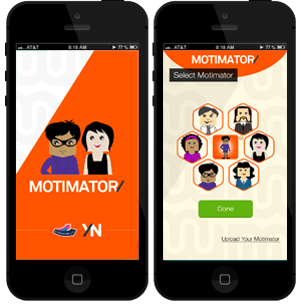Where are the most jobs?
We’ve all been told (several times) that there aren’t any jobs going, but are you looking in the right places? There are some sectors so under-staffed the opportunities are endless. If you want a job, here’s who you should be targeting.

We suspect most food scientists don't spend all day doing this.
It’s not all doom and gloom out there. According to Laura Jane Rawlings from Youth Employment UK there are employers in certain areas that are desperate to hire. So brush up your CV, these people need you.
Work in science and technology
Food science is growing rapidly. The University of Reading predict the industry will need around 137,000 new recruits over this decade, with 45,000 of those jobs requiring high-level science skills. And “the sector is gagging for young people,” says Laura Jane. “The jobs are varied, the salaries are good, some places even fund degrees, and it’s a safe area – after all, we’re always going to need to eat.”
And that’s only one science sector; you could go into biotechnology or environmental science as well.
How to get a job in science and technology?
There are so many different jobs in science we can’t list them all, but choosing sciences at A-level or as a degree will give you a springboard into this sector. However, you don’t have to be an academic to work in science — there are plenty of commercial roles available in defence, engineering and health, too.
Work in IT
IT employs over 1.5 million people in the UK, but employers still say they’re struggling to find people with the right skills. Loads of organisations need a strong IT department, so the opportunities are endless.
How do I get a job in IT?
One route is the Microsoft Partner Apprenticeship, which matches young people with IT skills to jobs at small-to medium-sized IT companies. You can get more information about IT careers from e-skills UK. In Northern Ireland? Website bringitonni.info has information for 14-19 year-olds about IT careers.
Work in social care
Social carers and workers help support and protect vulnerable people, so this is a really important job. There is a big shortage of social workers around the country and people will always caring professionals, especially now that people are living longer. So if you want to help others through your nine to five, this is a good choice.
How do I get a job in social care?
Social care offers you training on the job; you can gain qualifications like NVQs or train to become a care manager. For more advice on social care careers, visit www.skillsforcare.org.uk, or call the social care helpline on 0300 123 1100. There are also degrees and masters available. For graduates, there’s the new Frontline scheme, which involves paid on-the-job training.
Work in retail
Even though there’s constant talk about the ‘death of the high street’, retail, hospitality and catering are all sectors expected to grow in coming years. The industry actively looks for younger people to recruit – Morrisons, Sainsbury’s, Tesco and Phones4u — have all invested in hiring and training young people. And if you don’t fancy chatting to customers from behind a till, you could work in logistics, communications, operations, buying or merchandising. The opportunities are endless. “If you go in for one role and add value to the company, there will be potential for growth,” says Laura Jane.
How do I get a job in retail?
For many roles you won’t need qualifications, just a positive attitude and a good standard of literacy and numeracy. There is also a range of retail apprenticeships available. You may be able to train on the job and get work-based qualifications, including a BTEC First Certificate or an NVQ in Retail Skills.
But I have dreams! None of these jobs are for me…
The areas people want to get into, such as media, for example, are over-subscribed. “In 2010, there were 40,000 students with media qualifications and fewer than 98 jobs advertised,” says Laura Jane.
With that in mind, trying something you’ve never thought of before is a great way of accessing new opportunities. Plus, going into food science, social care or getting a job in Sainsbury’s doesn’t have to mean you’re giving up on your dream job. There are some serious positives to be said for getting a job. Any job:
- You’ll build up transferable skills. Whatever career you want, some skills will always be important, and you can prove you have them through your job in retail, IT… whichever.
- It’s easier to find a job if you have a job. Getting any job means not only will you be paid, but if you keep applying to other things you’ll have references and recent work on your CV.
- Don’t give up on your dreams altogether. Especially if your dream job involves something creative, practicing in your spare time could lead to the real thing. You could start a blog, join an amateur theatre group, or volunteer.
- Change career later on. You don’t have to go into the perfect job right now. It might be that later on you’ll be in a better financial and personal position to go into a competitive sector.
- And finally, let’s face it, finding that dream job is all well and good, but your life doesn’t have to revolve around your career. It’s OK to have a job that just pays the bills
Photo of tomato by Shutterstock.
Next Steps
- Chat about this subject on our Discussion Boards.
By
Updated on 29-Sep-2015
No featured article










